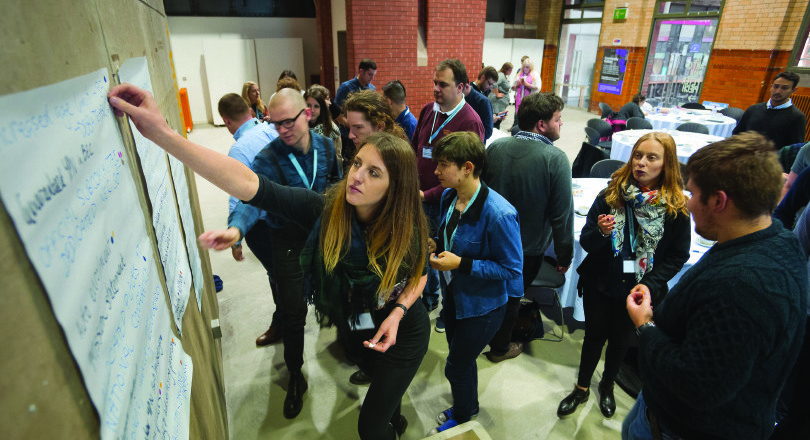Nigel Flanagan, a senior organiser with UNI Global Union, set out what work will look like in the future at Prospect's young professionals forum in Manchester in November.
The sectors that UNI organises in rely on young workers – often with untypical working patterns. “All the problems you can have at work exist in UNI sectors. UNI brings together experience from all over the world,” he said.
The trade union movement in the United States is “on its knees”. Union membership density is 11% across the economy and just 6% in the private sector. The biggest global companies are organised, controlled and run from the US, said Nigel.
The Right to Work legislation, which is enthusiastically supported by President-elect Trump, is the opposite of what it says and makes it very difficult for trade unions to operate.
“It’s not about right and left,” said Nigel. “But the impact of Trump’s policies could be very negative for trade unions and could trigger a second, world-wide recession.
“The future is deregulated, weak, disorganised workforces which will have a massive impact on equality.
Nigel pointed out that economic power is shifting to other parts of the globe. “Work is moving somewhere else and unless you can do your work online, you’ll have to move too,” he said.
Annual reports from global companies show that most are restructuring their businesses and moving to ‘mega-cities’. “Kuala Lumpur, Singapore and Beijing have bigger economies than most countries. So we have to think about how we organise ourselves.
“Power and wealth are becoming more concentrated. There is a connection between inequality and the level of trade union organisation.”
Future work
Nigel outlined what work will look like in the future and stressed that no sector will be immune from these effects.
- Flattened company structures: companies want your intellectual skills to be used in lots of areas
- Artificial intelligence: AI will be used to diagnose patients and collect and analyse data
- The Human cloud: over the next two-three years, work will be allocated by a network (see Amazon’s mechanical turk). Taskers will bid for bits of work. Who do unions bargain with in these circumstances?
- Workplace monitoring: this covers everything about you – your heartbeat, how long you slept etc.
- Retirement: won’t exist. Income will be through the human cloud. How do you organise pensions?
UNI has devised a strategy, called ‘Breaking through’ which aims to show the way. Find out what’s involved by reading about the eight steps here.

